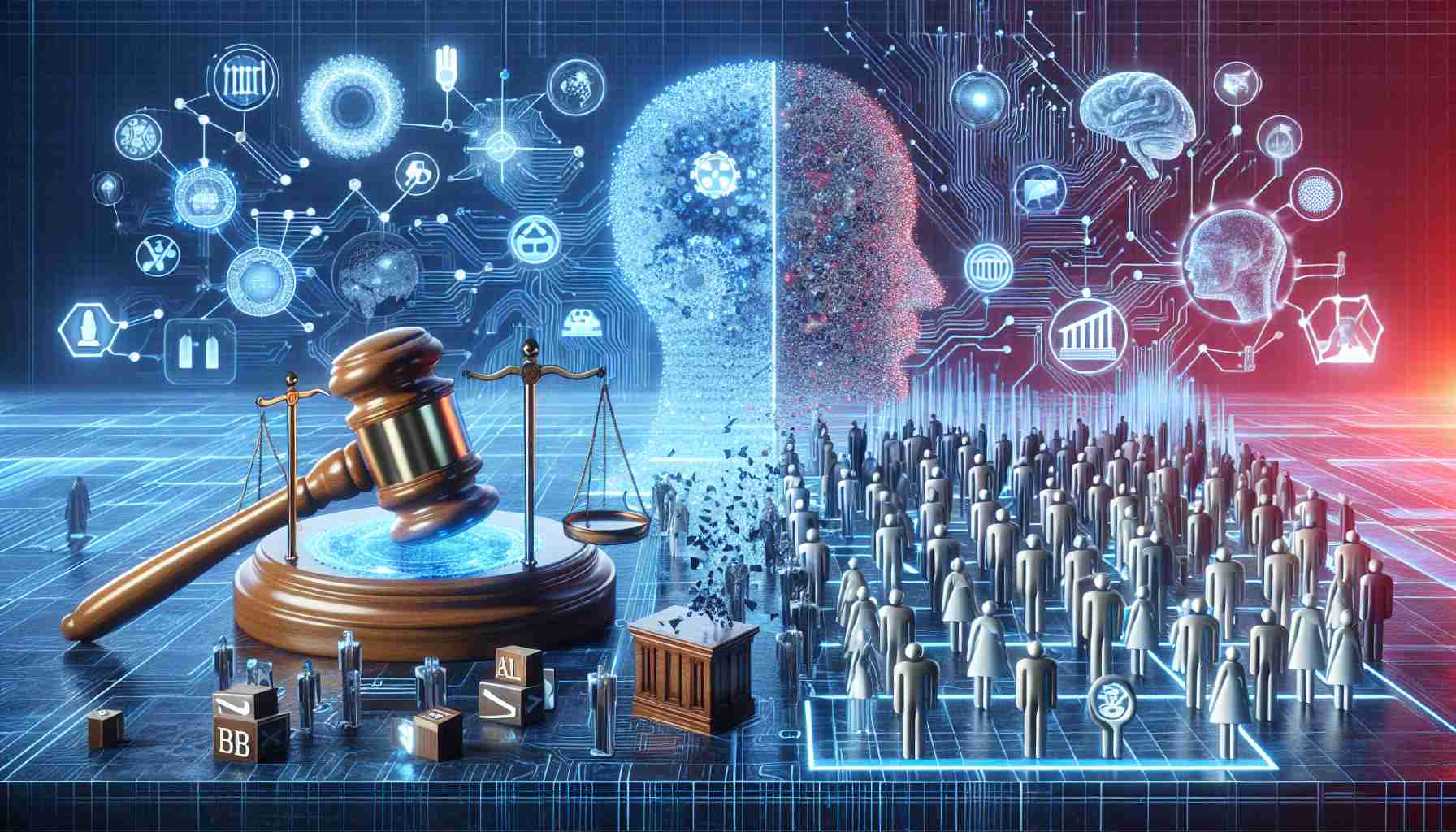Artificial intelligence (AI) has become a topic of great concern when it comes to its influence on elections and democratic processes. The rise of AI-generated deepfakes, which are realistic manipulations of audio and video, has sparked fears of misinformation and distrust among voters. Safeguarding the integrity of elections against foreign interference has become a priority for authorities in the UK. However, amidst these concerns, there is a lesser-discussed aspect: the potential benefits that AI could bring to democracy.
Hannah O’Rourke, co-founder of Campaign Lab, a network of tech volunteers with a left-leaning perspective, emphasizes that while there are risks of disinformation associated with AI, there are also significant opportunities for enhancing political campaigns. Campaign Lab conducts training sessions for Labour and Liberal Democrat campaigners on leveraging ChatGPT, an AI model, to draft election leaflets. It is important to note that generated content should be meticulously reviewed, as language models like ChatGPT can produce inaccuracies or fabrications. The organization is also exploring the use of chatbots to train canvassers for more engaging doorstep conversations. O’Rourke believes that by harnessing AI responsibly, campaign efforts can be streamlined, allowing for more direct voter engagement.
On the other side of the political spectrum, Joe Reeve, a Conservative-supporting AI expert, believes in the transformative potential of AI regardless of political affiliations. He founded Tory Techs, a community focused on the positive applications of AI in politics. Initially involved in programming sessions and refining Tory campaign messaging, Tory Techs now prioritizes educating politicians on the constructive utilization of AI.
Andrew Gray, the UK’s inaugural AI-powered election candidate in the Selby and Ainsty by-election, showcased the potential of AI in politics. Gray’s campaign utilized Polis, an AI-driven platform that facilitates consensus-building through discussion and voting. However, despite the novel approach, Gray’s candidacy failed to resonate with voters, highlighting the public’s apprehension toward unfamiliar technological concepts. He acknowledges that Polis may be better suited for local issues rather than national politics.
AI also holds promise in refining polling methodologies. Joe Twyman, co-founder of Deltapoll, underscores the role of sophisticated regression polls, enabled by AI, in offering deep insights into voter sentiment. Twyman dismisses the notion of AI accurately simulating voters, but recognizes the vast and unpredictable landscape of AI tools for political campaigns. Some innovations are poised to revolutionize the political arena, while others may prove futile.
Despite concerns, the integration of AI into politics is inevitable. It is shaping a future where technological advancements intersect with democratic processes in unprecedented ways. As society grapples with the implications of AI on democracy, one thing remains certain: AI has irrevocably altered the political landscape. Whether it augments campaign strategies, refines polling methodologies, or introduces new challenges, AI has ushered in a paradigm shift in the way democracy operates.
FAQ about AI in Politics:
Q: What are some potential risks associated with AI in politics?
A: One major concern is the spread of disinformation through AI-generated content. The use of deepfakes can lead to misinformation and distrust among voters.
Q: Can AI be utilized to enhance political campaigns?
A: Yes, AI can streamline campaign efforts and allocate more time for direct voter engagement. Language models like ChatGPT can aid in drafting election leaflets, while chatbots can train canvassers for more engaging conversations.
Q: How can AI improve polling methodologies?
A: AI enables sophisticated regression polls that offer deep insights into voter sentiment. This can help refine polling methodologies and provide a better understanding of public opinion.
Q: Is the integration of AI into politics irreversible?
A: Yes, AI has already had a transformative impact on politics. It has fundamentally altered the political landscape and will continue to shape the future of democratic processes.
Artificial intelligence (AI) has not only raised concerns about its influence on elections but also offers potential benefits to democracy. While risks such as disinformation through AI-generated deepfakes exist, there are opportunities to enhance political campaigns by leveraging AI technology responsibly.
Campaign Lab, a network of tech volunteers with a left-leaning perspective, conducts training sessions on utilizing AI model ChatGPT to draft election leaflets. They are exploring the use of chatbots to train canvassers for more engaging doorstep conversations. By harnessing AI, campaign efforts can be streamlined, allowing for more direct voter engagement.
Tory Techs, founded by AI expert Joe Reeve, focuses on the positive applications of AI in politics regardless of political affiliations. The community initially worked on refining Conservative campaign messaging but now prioritizes educating politicians on the constructive utilization of AI.
Andrew Gray, an AI-powered election candidate, utilized the AI-driven platform Polis to facilitate consensus-building through discussion and voting. However, the use of unfamiliar technological concepts like Polis may not resonate well with voters in national politics, suggesting that it may be better suited for local issues.
AI is also promising in refining polling methodologies. AI-enabled regression polls offer deep insights into voter sentiment, providing a better understanding of public opinion. While AI may not accurately simulate voters, the unpredictable landscape of AI tools for political campaigns brings both revolutionary possibilities and potential futility.
Despite concerns, the integration of AI into politics is inevitable and has already led to a paradigm shift in the way democracy operates. Technological advancements intersect with democratic processes, shaping a future where AI plays a significant role.
Related links:
– Tory Techs: Visit the website of Tory Techs, a community focused on the positive applications of AI in politics.
– Deltapoll: Learn more about Deltapoll, co-founded by Joe Twyman, which utilizes sophisticated regression polls enabled by AI to offer deep insights into voter sentiment.

